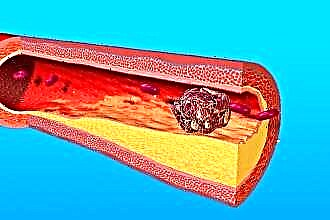The individual characteristics of each person affect the course of the disease, the effectiveness of treatment and the prognosis. The widespread occurrence of cardiovascular pathology requires a thorough assessment of the condition with the calculation of possible risks and complications in patients of both sexes. Clinical practice confirms that men are more susceptible to cardiovascular disorders with the formation of irreversible consequences and a severe course.
What heart diseases do men most often suffer and why?
The most common cardiological pathology among men is ischemic heart disease (IHD) and arterial hypertension. The first develops due to a disorder of the adequate blood supply to the myocardium (heart muscle). The main reasons are blood clots (thrombi) or atherosclerotic plaques (in violation of fat metabolism).
Hypertension is characterized by a persistent increase in blood pressure with signs of damage to target organs without an organic cause (essential, primary) or against the background of pathology of other systems.
The reasons for the frequent development of symptoms of heart disease in men:
 high frequency and high alcohol consumption;
high frequency and high alcohol consumption;- smoking;
- obesity tendency. The latest data claim that overweight is more often formed in men (over 30 years, the frequency of pathology has increased from 30% to 38% of the total male population of the planet);
- low physical activity. Most office workers do not adhere to an adequate motor regime;
- negative impact of stress factors. It has been scientifically proven that men have less pronounced emotional, behavioral and social adaptation in times of crisis;
- lack of cardioprotective effect of estrogens. Female hormones serve as protection for blood vessels during the entire period of reproductive age.
The combined effect of these factors contributes to the damage to the structure of the vascular wall and blood properties. Blood clots form in the lumen of the arteries, the autonomic (autonomous) regulation of tone is disrupted, and atherosclerotic plaques develop in the affected areas. The manifestations of cardiovascular pathology (in general) are more typical for men of working age with a high level of activity and responsibility.
The female sex is more often diagnosed with vegetative-vascular dystonia (functional disorder). Takatsubo cardiomyopathy (broken heart syndrome), which occurs in old age after a strong emotional experience, is considered an exclusively female pathology.
Are there special symptoms of heart disease in men?
Symptoms of cardiovascular diseases do not have sufficient specificity and often mimic other pathologies. Acute conditions, which are accompanied by a threat to the patient's life, require correct diagnosis and timely initiation of treatment. The conducted studies have identified the main differences in the course of cardiac pathology in men and women (for example, IHD).
| Criterion | Men | Women |
|---|---|---|
| Debut of pathology | 45-55 years old | 60-70 years old |
| The main signs | A characteristic attack of anginal pain behind the sternum. With a heart attack, it is accompanied by impaired consciousness, arrhythmia and shortness of breath | A blurred picture with low pain intensity or "painless" variant of angina pectoris is often found. With myocardial infarction - often sweating, skin changes |
| The effectiveness of the treatment | High | Low, with the need for a combination of many drug groups |
| Mortality (within 1 year after myocardial infarction) | To 10% | 19% |
 From a psychological point of view, men are more responsible and attentive to their health, therefore, they often notice changes.
From a psychological point of view, men are more responsible and attentive to their health, therefore, they often notice changes.
The most common symptoms of heart disease in men are:
- increased heartbeat;
- a feeling of interruptions or temporary stops in the work of the heart;
- the appearance of signs at low pressure values (upper 150-160 mm.article). For comparison - women complain of headaches and weakness with indicators above 180;
- shortness of breath (high frequency of shallow breathing), which is formed due to the failure of the heart to transport a sufficient amount of oxygen to the tissues;
- fatigue when doing common household chores;
- chest pain of high intensity, which requires stopping the usual activities.
Vegetative changes against the background of an attack are more characteristic of the female sex due to the lability of the nervous system.
Does the treatment of male heart disease require a special approach and why?
 Therapy for cardiovascular pathology is carried out according to standardized protocols and clinical guidelines, regardless of the age and gender of the patient. However, in medical practice, there are differences in the effectiveness of standard treatment in men and women.
Therapy for cardiovascular pathology is carried out according to standardized protocols and clinical guidelines, regardless of the age and gender of the patient. However, in medical practice, there are differences in the effectiveness of standard treatment in men and women.
It is believed that representatives of the stronger sex are more sensitive to first-line drugs, therefore, the appointment of drug correction begins with simple drugs in low doses.
Most often, men with arterial hypertension or angina pectoris are prescribed no more than 2 drugs (in the absence of indications for symptomatic treatment of other pathologies).
In addition, unlike women, more funds are available for them to use, since there are no such contraindications as pregnancy or lactation.
How does gender affect prognosis and why?
All over the world, signs of heart disease are more common in men than in women. However, due to the influence of additional factors, the prognosis for the disease is radically different:
 the occurrence of an attack of angina pectoris or the development of myocardial infarction in men is more often caused by rupture of an atherosclerotic plaque, while in women it is caused by a systemic violation of blood properties and increased thrombus formation;
the occurrence of an attack of angina pectoris or the development of myocardial infarction in men is more often caused by rupture of an atherosclerotic plaque, while in women it is caused by a systemic violation of blood properties and increased thrombus formation;- the widespread prevalence of diabetes mellitus, mainly in females, affects the condition of the arterial walls, which contributes to the development of pathologies and their refractoriness (lack of effect) to treatment;
- the risk of developing a repeated "coronary event" and early mortality after a heart attack in women is 2 times higher;
- timely diagnosis, treatment and lifestyle changes reduce the risk of recurrence or complications in men by more than 3 times.
Weight loss by 10 kg reduces blood pressure indicators by 15-20 mm Hg.
Conclusions
Conditions when the heart is playing pranks can be caused by various pathological processes and reactions. The peculiarity of the male body is characterized by a greater tendency to develop cardiovascular pathology. However, the ease of diagnosis (typical clinical picture), high sensitivity to therapy in combination with lifestyle modification form a more favorable prognosis than for women.

 high frequency and high alcohol consumption;
high frequency and high alcohol consumption; the occurrence of an attack of angina pectoris or the development of myocardial infarction in men is more often caused by rupture of an atherosclerotic plaque, while in women it is caused by a systemic violation of blood properties and increased thrombus formation;
the occurrence of an attack of angina pectoris or the development of myocardial infarction in men is more often caused by rupture of an atherosclerotic plaque, while in women it is caused by a systemic violation of blood properties and increased thrombus formation;

